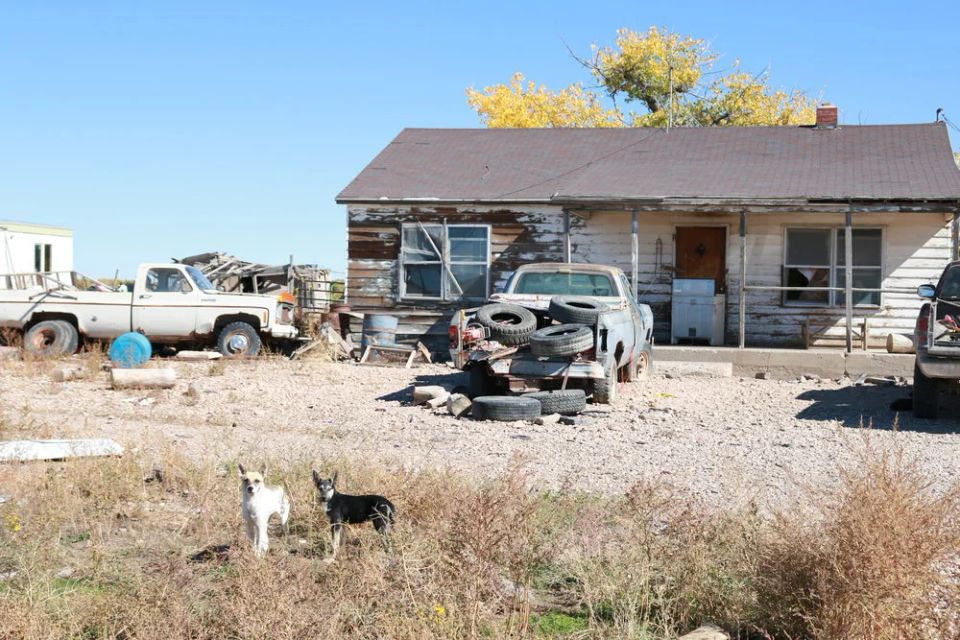ZONING & CODE ENFORCEMENT
Municipalities often struggle with managing property maintenance concerns. Many small, rural municipalities would like to regulate property maintenance issues, but have no formal regulations in place. Some have existing codes but find it difficult to understand or enforce the code that is written. As municipal leaders embark on their zoning and code enforcement journey, it is important that any regulations fit the administrative capacity of the individual community, and that education and training on code enforcement opportunities and limitations is afforded to staff and elected officials.
A searchable website that allows users to view all municipal code throughout the state of Ohio.
A searchable website that allows users to view all municipal code throughout the state of Ohio.
Value of Codes to Neighorhood:
- Property Maintenance and Value: Enforcing codes ensures that buildings are adequately maintained, preserving property values, particularly in older neighborhoods where maintenance might otherwise be neglected.
- Neighborhood Cohesion: Property maintenance significantly impacts neighboring properties, making it a collective concern for the neighborhood's well-being. It fosters cohesion and a sense of shared responsibility among residents.
- Enforcement Authority: The effectiveness of code enforcement hinges on whether the town has adopted relevant codes through ordinances. Without proper ordinances, enforcement efforts lack legal backing and authority.
- Addressing Aesthetic Concerns: Codes establish a basic standard of appearance in the neighborhood, contributing to its visual appeal and character, even though they may not cover all aesthetic issues.
- Vacant Building Registration: While not traditional codes, ordinances related to vacant building registration play a crucial role in code compliance and neighborhood improvement by identifying and addressing abandoned properties.
- Implementing Quality Enforcement Programs: Effective code enforcement involves emphasizing compliance over punishment, providing resources and assistance to property owners, and fostering community involvement in maintaining neighborhood standards.
- Mediation and Compliance Agreements: Offering mediation frameworks and formal compliance agreements provides alternative approaches to resolving disputes and ensuring compliance with codes, promoting constructive dialogue between property owners and enforcement agencies.
- Benefits to the Community: Actively engaging in code enforcement enhances the overall aesthetics of the neighborhood, improves attitudes toward local government, and boosts property values and business investment, contributing to the overall well-being and prosperity of the community.
Best Practices for Small Town Code Enforcement
-
Positive Framing: Emphasize compliance and community benefits rather than focusing solely on non-compliance, fostering a positive attitude towards enforcement.
-
Community Engagement: Involve the community in enforcement efforts through initiatives such as clean-up days and assistance programs, fostering a sense of collective responsibility.
-
Gradual Implementation: Adopt a measured approach to enforcement, gradually increasing measures as the community becomes accustomed to enforcement practices.
-
Alignment with General Plan: Ensure that enforcement efforts align with the community's long-term vision and goals as outlined in the general plan.
- Simplify Codes: Simplify municipal codes to enhance clarity and accessibility, ensuring that codes support the overarching goals of the community.
-
Establish Enforcement Programs: Develop clear and effective enforcement programs that educate residents, encourage compliance, and address violations promptly.
-
Capacity Building: Utilize available resources effectively, including volunteers and community members, to build enforcement capacity and overcome resource constraints.
-
Consistency: Maintain consistency in enforcement practices over time, conducting regular inspections and responding to violations promptly.
-
Flexibility: Tailor enforcement plans to suit the unique needs, culture, and resources of the community, allowing for adaptable approaches to enforcement.
- Continuous Evaluation: Periodically review and evaluate enforcement strategies to ensure effectiveness and alignment with community objectives.
Funding Code Enforcement Programs:
Code enforcement programs require sufficient funding, which may come from various sources such as:
-
general funds
-
Community Development Block Grants (CDBG)
-
license and permit fees
- penalties imposed on violators
Examples of Innovative Approaches:
-
Greensboro, North Carolina: Implemented a partnership with a nonprofit organization to educate the public about code requirements and facilitate code enforcement referrals to prevent displacement and address housing issues.
-
Newark, New Jersey: Established interagency coordination and a taskforce to improve the effectiveness of code enforcement through a referral system.
-
Alameda County Healthy Homes: Utilizes a collaborative model where code enforcement officers work with property owners to achieve compliance, providing resources for repairs and information on lead safety.
- Chelsea, Massachusetts: Collaborated with a local social service agency to integrate code enforcement with social service provisions, addressing root causes of housing problems through a partnership approach.
Understanding and Acknowledging Your Realities
Successful code enforcement requires acknowledging the realities of local real estate markets and the challenges faced by residents and business owners. Communities need to invest substantial resources to support vulnerable property owners. Various programs are active today to assist property owners with maintenance and repair needs:
-
Free and Discounted Supplies:
Cities like Battle Creek, MI, and Kalamazoo, MI, offer free paint and graffiti removal supplies to property owners through partnerships and grant funding.
-
Rehab and Repair Services:
Nonprofits like Rebuilding Macon in GA and local Habitat for Humanity affiliates across the country offer free or discounted home repair services to low-income homeowners.
-
Grants and Flexible Financing:
Cities like Milwaukee, WI, and Philadelphia, PA, offer forgivable loans and repair loans to landlords and homeowners to address health and safety issues.
Resources

Code Enforcement Recommendations for Small Towns
Community Development Office, part of the Housing and Community Development Division, within Department of Workforce Services, Utah

Code Compliance: Difficulties and Ideas for Small Towns
The Western Planner

Code Enforcement is Often Vital to Community Development
Our goal is to talk about common community and neighborhood issues in plain English, emphasizing uncommon candor, a point of view, and a sense of humor. Expect a conversational style, good background information you will need to bring about change, and informed general advice on what usually works and what does not.

Code Enforcement Brief
BACK
NEXT


